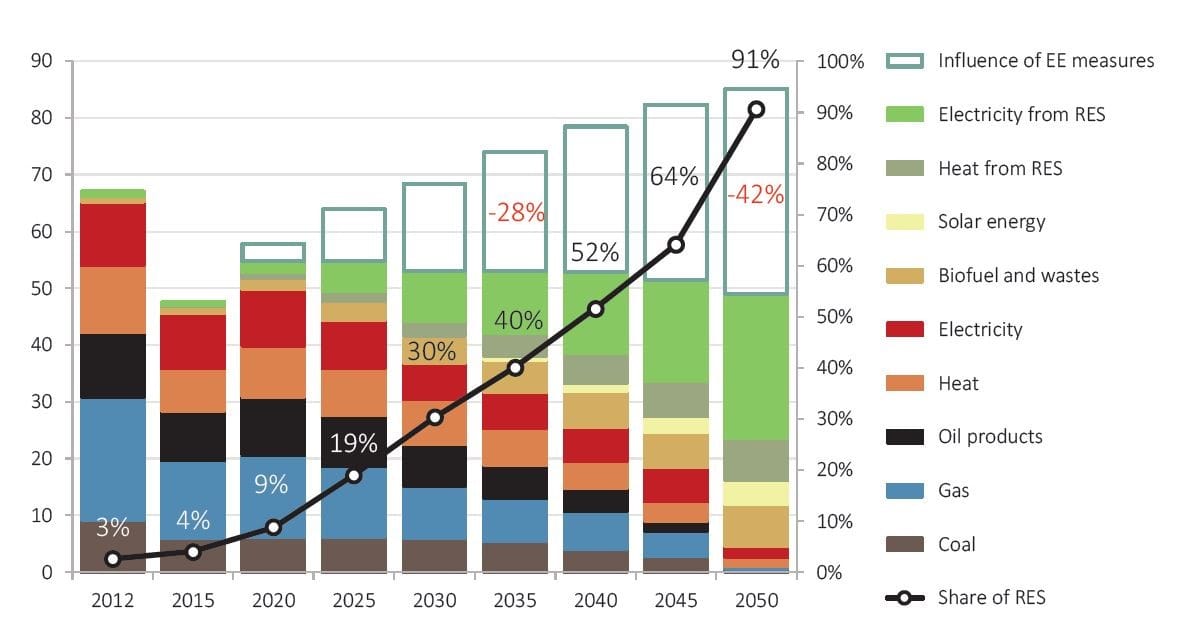In a pivotal moment for both Ukraine and the European energy landscape, Ukrainian officials have declared an end to their previous energy strategy that allowed for extensive gas exports to European nations, a practice that has been likened to enabling a dependency on fossil fuels. This shift is not merely a response to the ongoing geopolitical tensions in the region but also reflects a broader commitment to energy independence and sustainability. The decision comes at a time when Europe is grappling with the need to diversify its energy sources and reduce reliance on any single supplier, especially in light of the recent conflicts that have disrupted traditional energy flows.
Ukraine has long been a critical transit country for natural gas to Europe, with its pipelines serving as vital conduits for energy supplies from Russia. However, the ongoing conflict and the subsequent geopolitical realignments have prompted Ukrainian leaders to reassess their energy policies. The new approach emphasizes domestic energy production, renewable energy sources, and a gradual phasing out of fossil fuel dependency. This transition is expected to not only enhance Ukraine’s energy security but also contribute to the European Union’s broader goals of achieving carbon neutrality by 2050.
The decision to end the reliance on gas exports to European nations has significant implications for both Ukraine and its European partners. For Ukraine, this marks a shift towards energy self-sufficiency, allowing the country to invest in renewable energy technologies and infrastructure. The government aims to harness its abundant natural resources, including wind, solar, and biomass, to create a more sustainable energy future. This transition is seen as essential for fostering economic growth and resilience in the face of external pressures.
For European nations, this shift presents both challenges and opportunities. Many countries have relied on Ukrainian gas as a key component of their energy mix, and the cessation of these exports will require a reevaluation of energy strategies. European leaders are now faced with the task of accelerating investments in alternative energy sources, including renewables and nuclear power, to fill the potential gap left by the reduction of gas imports from Ukraine. This situation may also encourage further collaboration among European nations to develop a more integrated and resilient energy market.
Moreover, Ukraine’s decision aligns with the European Union’s broader energy policy objectives, which prioritize sustainability and the reduction of greenhouse gas emissions. The EU has been actively working to decrease its dependency on fossil fuels and transition to cleaner energy sources. Ukraine’s pivot away from gas exports can be seen as a complementary move that supports these shared goals, fostering a more sustainable energy future for the entire region.
As Ukraine embarks on this new energy journey, it is also likely to seek partnerships with other nations that prioritize renewable energy development. Collaborative efforts in technology transfer, investment in green infrastructure, and research and development will be crucial in facilitating this transition. Ukraine’s rich natural resources and strategic location can position it as a leader in renewable energy within the region, attracting investment and expertise from European nations eager to diversify their energy portfolios.
The end of gas dependency also raises questions about the future of energy pricing and market dynamics in Europe. As countries adjust to new energy realities, fluctuations in energy prices may occur, potentially impacting consumers and industries alike. Policymakers will need to navigate these changes carefully, ensuring that the transition to renewable energy sources does not lead to energy shortages or economic disruptions.
In conclusion, Ukraine’s decision to end its reliance on gas exports to Europe marks a significant turning point in the energy landscape of the region. This shift not only reflects Ukraine’s commitment to energy independence and sustainability but also aligns with the European Union’s goals of reducing fossil fuel dependency. As both Ukraine and Europe adapt to this new energy paradigm, the focus will be on fostering collaboration, innovation, and resilience in the face of evolving energy challenges. The path ahead may be complex, but the potential rewards of a sustainable and secure energy future are substantial for all parties involved.



